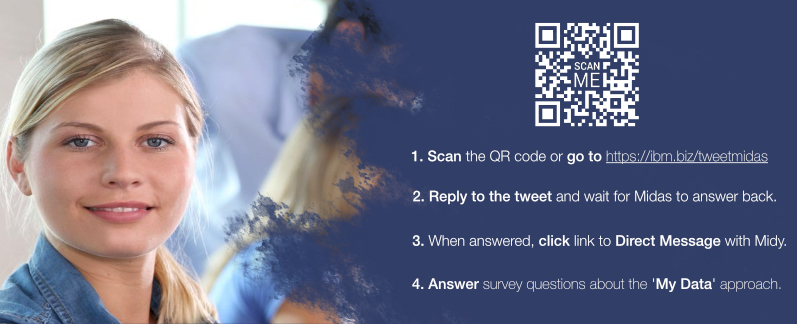Guest post by Julius Francis Gomes and Elina Hyrkäs (from Martti Ahtisaari Institute, University of Oulu), Jarmo Pääkkönen (from Centre for Health and Technology, University of Oulu) and Peter Poliwoda (from IBM)
Personal data gathered by business entities or non-business entities is controlled mainly by the collecting organizations. Although the newly rolled out GDPR reinforces different key aspects of data security and citizen’s mandatory rights e.g. consent management. In prior research, human-centered approach in personal data management has been called for and suggested as one way to enable individuals to gain ownership over their personal data and to take an active role in a market. Poikola et. al (2014) introduced the concept of MyData as a human-centric personal data management model. In MyData approach, individuals have control over their personal data for access controlling and transferring personal data from one service provider to the other since the initial management of the data lies with the individual. MyData as a personal data management model is already recognized across different industries and in academia as business enablers.
Undoubtedly, health policies have great impact on general health of population from short-term to long-term future, and existing literature suggests there is a lack of proper evidence when it comes to health policies. In some cases, the data in different repositories are also outdated to make analysis for current or future needs. It has been claimed that open data has no value in itself; it only becomes valuable when used and combined with some other complementing data. When a new dataset is published there should also be knowledge about how to improve things with that (Janssen, Charalabidis, Zuiderwijk, 2012). According to multiple health policy makers in Finland, open data, personal or individual data could serve the purpose if they could be included in the framework. The human centered data management, called MyData approach on the one hand gives individuals chance to manage all data originating from themselves; on the other hand, for health policy makers could allow new dimensions of data being included to the policy framework.
MyData approach continues gaining momentum through exploration of new value adding applications and services which need perceived acceptance and trust by the individual users. The healthcare application domain is very close to the society and highly concerned by the individuals, and therefore the MyData concept needs more evidences and clarifications for individuals. For that reason, in MIDAS project, we are attempting to understand the value of MyData approach in health policies.
What do individuals think of MyData?
The MIDAS project has identified that it is as necessary to understand perceptions and necessaries of civilian individuals as it reflects for policy makers’ needs and demands. To understand peoples’ opinions and concerns about using MyData as a personal data in healthcare policy making we are running an online survey using IBM’s MIDAS Social Platform through a virtual assistant interacting with the users through social media. We aim to reach a substantial number of responses from the general population and comprehend their current level of knowledge around personal data, and which kinds of data they are willing to open for health policy making, and to whom they would be willing to share their data. The survey will provide us with an idea about market readiness and the perceived acceptance of the concept. Based on which we could conclude the MyData as a personal data management approach suitable also for health policy making. We need also to think about how the data is used and analyzed so the decisions will endorse health care services.
As a new approach of personal data management, the MyData promises to deliver numerous goods, but it is time to do some reality check. Perhaps, the MyData model is suitable for various business applications, but how can this be properly utilized in the healthcare domain, and more critically in policy making scenarios. Some might challenge that personal data on a granular level does not bring too much value for the health policy debate, but what kind aggregation and/or anonymization methodologies are suitable for the health policy scenarios. As the survey is still on-line people are highly encouraged to answer to it.
The campaign is enabled by the MIDAS Twitter chatbot , and we are inviting individuals to share their view. The MyData survey can be accessed directly through this QR code in figure or via the link https://ibm.biz/tweetmidas. Just start by saying Hello!

References
Poikola, A., Kuikkaniemi, K., Honko, H.: MyData – A Nordic Model for Human-Centered Personal Data Management and Processing. Ministry of Transport and Communication, Open Knowledge Finland (2014)
M. Janssen, Y. Charalabidis & A. Zuiderwijk (2012). Benefits, Adoption Barriers and Myths of Open Data and Open Government. Information Systems Management (ISM), vol. 29, no.4, pp. 258-268.
